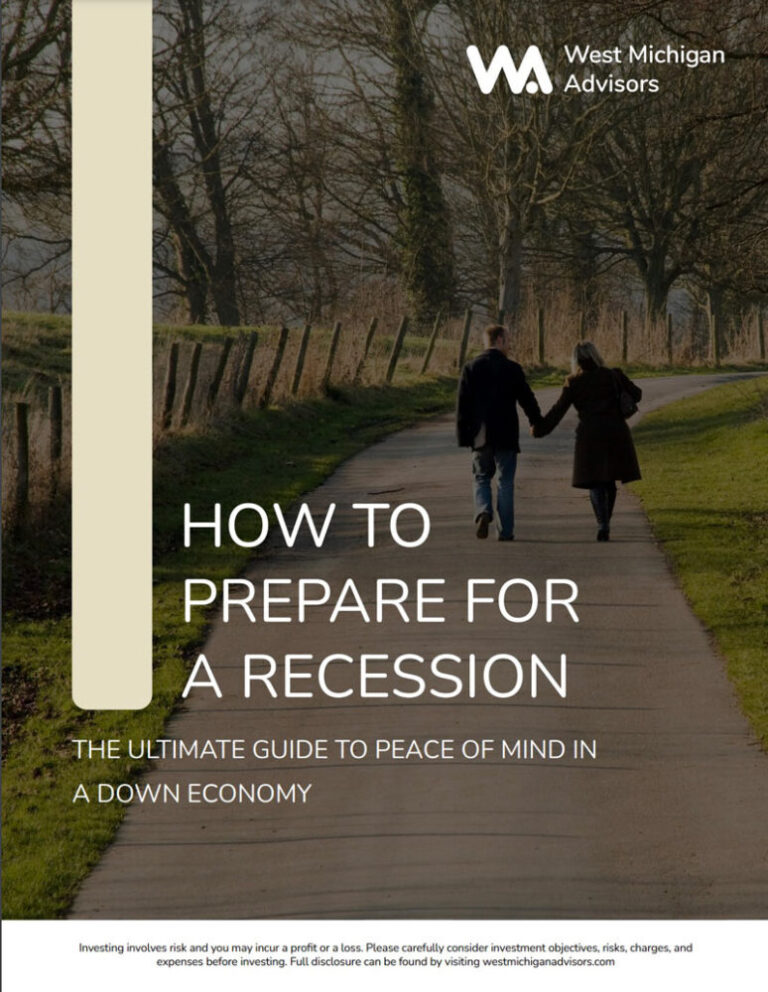Sudden wealth can feel like a huge blessing. You might be elated to finally pay off your debts or make that big purchase. But while the extra income can buy you the freedom to dream, it is also an enormous responsibility. If handled poorly, sudden wealth can cost you incredible stress and leave you in a bad financial situation. To keep it a blessing and not a curse, you need to know how to manage sudden wealth.
In this blog post, we’ll explain what sudden wealth is, lay out a step-by-step plan for how to manage it and provide 3 tips to make sure you do it right.
What is Sudden Wealth, and Why Does it Matter?
Sudden wealth doesn’t just mean winning the lottery. It can be any quick and dramatic increase in your net worth. Often it comes from the sale of a business, an inheritance, a legal settlement, a divorce or an ESOP payment. And it doesn’t have to be an influx of millions of dollars to be important. If yesterday you had $100,000 of investable assets and today won a legal settlement for $200,000, that’s sudden wealth. You just tripled your assets, and with that settlement, you were handed a pile of new opportunities and challenges!
No matter the source, sudden wealth will impact you in short and long-term ways.
At first, you might be excited and start dreaming of big purchases. You may feel relieved that you can pay off debts. But those good feelings can quickly give way to stress. With sudden wealth comes new legal, tax and relational obligations. There may be a million decisions you have to make, all with more pressure than you faced before your income changed. And because you’ve never been in this position before, it’s easy to feel overwhelmed.
The decisions you make with sudden wealth early on will affect your long-term outcomes. If handled well, sudden wealth could increase your standard of living and be just the push your family needed to reach a new level of security. But handled poorly, sudden wealth can increase your debts or disrupt the lifestyle you do have.
That’s why how you manage sudden wealth matters. It’s too important to get wrong. To learn how to manage sudden wealth the right way, follow the steps below.
How to Manage Sudden Wealth
1. Call a Financial Advisor

It’s okay if sudden wealth has you stressed. This is new territory for you.
But while you’ve never had to manage money like this before, financial advisors have. They do it every day.
At West Michigan Advisors, we help people manage sudden wealth all the time. We work with people at every level of assets, so we know the challenges and opportunities in every tax bracket. And because we have over 140 years of experience as financial advisors, we know how to partner with you.
That type of partnership is important with sudden wealth. A financial advisor is an experienced guide that can help you navigate these new waters, sparing you unnecessary pain and maximizing your benefits.
2. Slow down when emotions are involved

Like we’ve said above, sudden wealth brings out a lot of feelings. You may be excited, relieved, stressed, confused, grieving, overwhelmed or any one of a hundred different emotions.
The problem is that every one of those emotions tells you that you need to make a decision. They’re all clamoring for you to move and move now. Make that big purchase, invest in that new stock, donate to charity. Now.
While none of those actions are inherently bad things, reacting out of emotion rarely goes well. Often the decisions are hasty and poorly informed. And in many cases, they can make your wealth disappear as quickly as it showed up.
Instead, try to slow down. You don’t need to make every decision today and you shouldn’t make any decisions without wise counsel. This is another place where a financial advisor helps. They can view the situation objectively and help you make a wise decision instead of an emotional one.
3. Define your current reality

While you might be tempted to focus on the future (whether in anxieties or hopes), if you want to know how to manage sudden wealth, you need to define your current financial reality.
First, this means getting an accurate picture of your current assets and debts. Do you still have student loans or a large mortgage payment? How much do you have currently invested and where? As you look at these things it is important to consider your stage of life. Are you just beginning your working life or are you close to retirement?
Once you know the answers to these questions you can then take a realistic look at your sudden wealth. While it may feel like you’ve just won the lottery, get specific about how much you’re actually receiving. Include deductions for taxes and any related financial fees. It’s much easier to plan when you know exactly how much money you have to manage.
A financial advisor can help you sort through all of these numbers and come up with a strategy that makes sense for you.
4. Avoid all or nothing strategies

It’s tempting to view sudden wealth as disposable income. You may be open to a higher risk investment because it still feels like it’s not “your money”. But all or nothing strategies are dangerous. Why throw away something that could improve your family’s life?
When you come into sudden wealth, a wise investment strategy follows the typical rules: Slow and steady wins the race. Diversify your portfolio. Plan for the long-term.
That may not sound as exciting as a major investment in a booming stock or a large purchase of cryptocurrency. But again, take emotion out of the equation and you’ll see that this type of investment strategy helps make the most of your sudden wealth.
3 Tips and Reminders for Managing Sudden Wealth
The above steps should help you get started. But there will still be a lot of things to consider. A financial advisor can help you sort through all of the details, but in the meantime here are 3 tips and reminders for learning how to manage sudden wealth.
1.Think about more than the numbers
Money can often change dynamics with family and friends. Be mindful of how you approach conversations with those closest to you.
2.Prepare for taxes
Unfortunately, more money means more taxes. You’ll likely have to pay a large sum on your new income. Strategize early to avoid an unpleasant surprise.
3.Work to educate yourself on finances
While you may already be financially savvy, sudden wealth can bring up a host of terms, rules and strategies you’ve never heard of before. Take the time to learn about each of these things so you can play an active role in managing your money.
With the Right Plan You Can Make Sudden Wealth a Huge Blessing
We understand that with sudden wealth it can feel like a huge responsibility was dropped in your lap. But this doesn’t have to be overwhelming, it can be a huge blessing. You just need the right plan.
In this article, we helped you learn how to manage sudden wealth. We laid out four clear steps:
- Call a financial advisor
- Slow down where emotions are involved
- Define your current reality
- Avoid all or nothing strategies
If you follow these four steps, you’ll be well on your way to turning this opportunity into a blessing that can last for generations.
But it’s okay if it still seems like a lot. It’s important to get extra help. While it might feel sudden to you, at West Michigan Advisors we manage finances every day. We know how to build financial plans that take care of your family.
Just schedule a call and we’ll be happy to help you figure out your next step.
The material has been gathered from sources believed to be reliable, however West Michigan Advisors cannot guarantee the accuracy or completeness of such information, and certain information presented here may have been condensed or summarized from its original source. To determine which investments or planning strategies may be appropriate for you, consult your financial advisor or other industry professional prior to investing or implementing a planning strategy. This article is not intended to provide investment, tax or legal advice, and nothing contained in these materials should be taken as such. Investment Advisory services are offered through West Michigan Advisors. Advisory services are only offered where West Michigan Advisors and its representatives are properly licensed or exempt from licensure. No advice may be rendered unless a client agreement is in place.










